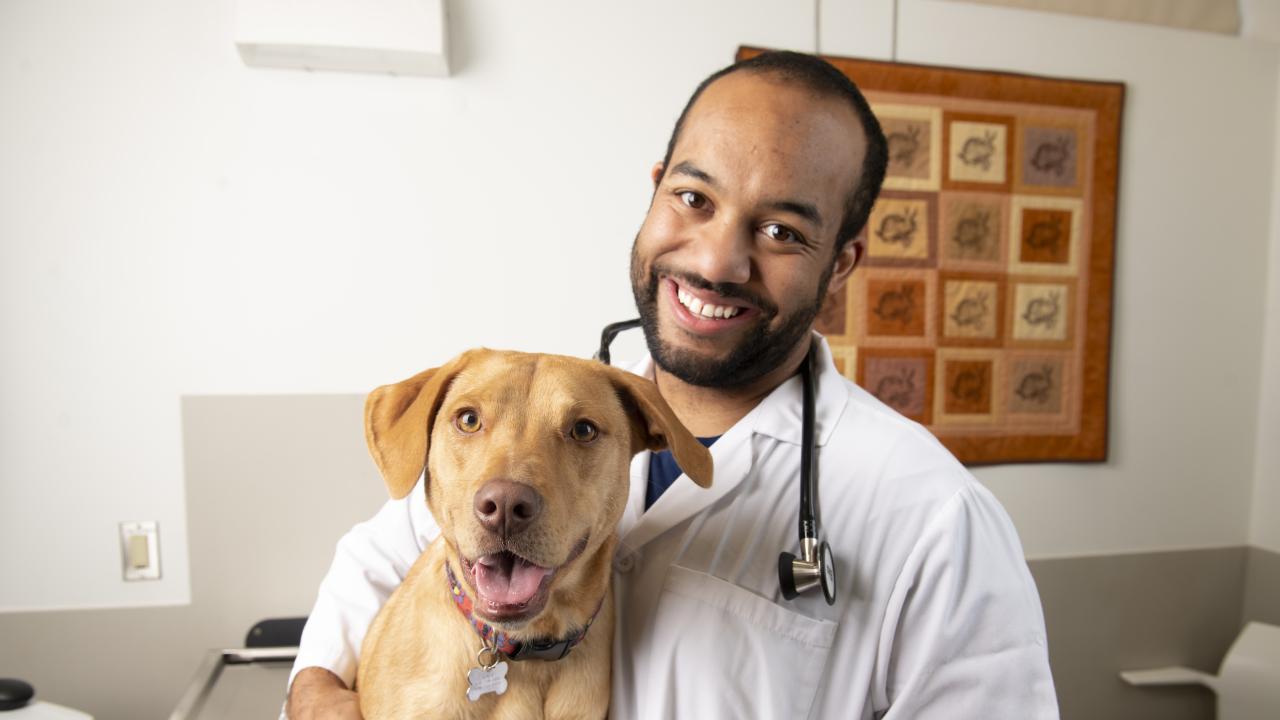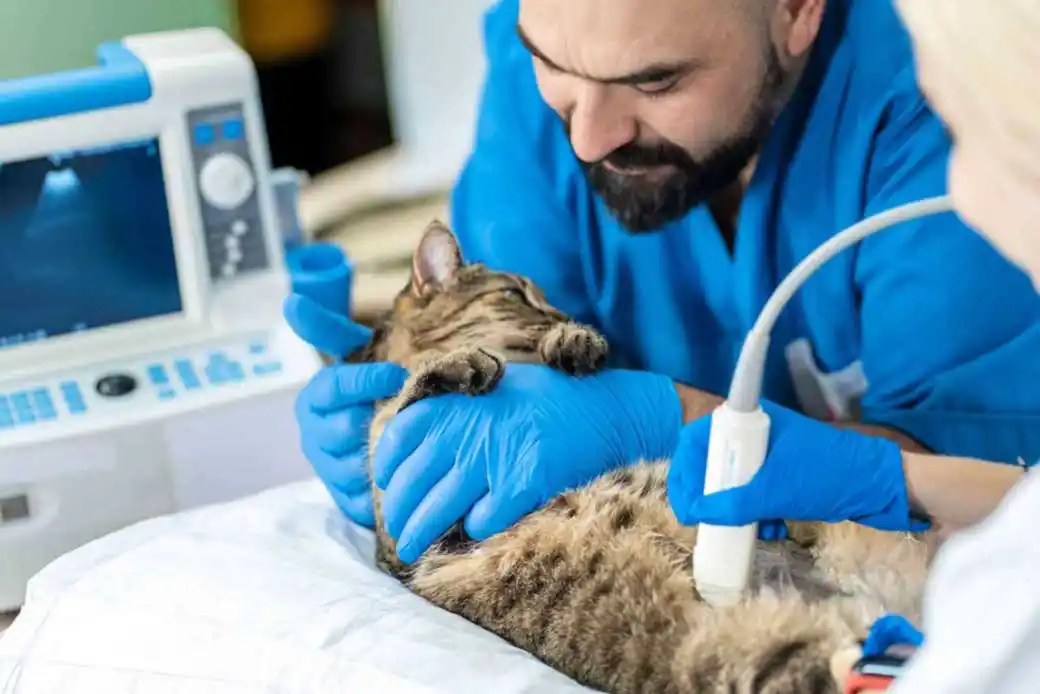Pet Cancer Surgery broken down for worried pet owners
Wiki Article
Comprehensive Overview to the Services Offered by a Vet Oncologist
Vet oncology includes a wide array of services targeted at dealing with and identifying cancer in pets. Board Certified Veterinary Oncologist. Oncologists use sophisticated diagnostic techniques and offer various treatment alternatives customized to every animal's requirements. They additionally prioritize helpful care and give useful resources for pet proprietors. Recognizing these solutions is crucial for making notified decisions. What specific facets of veterinary oncology can notably influence a family pet's treatment trip?Understanding Vet Oncology
Veterinary oncology is a customized field concentrated on treating and identifying cancer in pets. This discipline includes a wide variety of strategies, from clinical therapies such as chemotherapy and immunotherapy to surgical treatments targeted at getting rid of growths. Veterinary oncologists are educated to recognize the special symptoms of cancer cells in different types, allowing them to customize therapy strategies to specific people.In enhancement to standard therapies, veterinary oncology emphasizes helpful treatment, which plays a vital duty in enhancing the high quality of life for affected animals. This includes pain administration, dietary assistance, and palliative care options. Partnership with pet dog owners is vital, as they are integral to decision-making regarding their family pets' treatment paths. As research developments, vet oncology proceeds to evolve, supplying brand-new hope and boosted outcomes for pets detected with cancer cells. In general, this field is basic for dealing with the intricacies of cancer in buddy pets.
Advanced Diagnostic Techniques
Advanced diagnostic strategies play a necessary role in vet oncology, giving critical insights into the presence and extent of cancer in pets. Imaging methods such as ultrasound, CT scans, and MRI are generally utilized to imagine tumors and assess their characteristics. Additionally, biopsy procedures are very important for obtaining cells samples, enabling definitive diagnosis and customized therapy plans.Imaging Modalities Utilized
Imaging methods play a necessary role in the diagnosis and administration of cancer in pets. Veterinary oncologists make use of various innovative imaging techniques to analyze tumor dimension, presence, and transition. Radiography, or X-rays, offers a preliminary sight of bone and chest conditions, while ultrasound gives real-time imaging of soft tissues, enabling for detailed examination of internal body organs. Computed tomography (CT) boosts visualization of complicated physiological frameworks and makes it possible for 3D restorations, assisting in accurate growth localization. Magnetic resonance imaging (MRI) is important for soft cells differentiation, specifically in mind tumors. Additionally, nuclear medicine strategies such as positron discharge tomography (PET) aid identify metabolic task within lumps. Collectively, these techniques boost analysis precision, guiding efficient treatment methods for oncological people.Biopsy Treatments Explained
Complying with the preliminary analysis via imaging modalities, acquiring a clear-cut medical diagnosis usually needs cells tasting through biopsy procedures. Vet oncologists utilize different biopsy methods based upon the tumor's location and attributes. Great needle goal (FNA) is a minimally intrusive method that draws out cells for cytological exam, suitable for surface masses. Core needle biopsies give larger cells examples and are useful for deeper tumors, enabling for histopathological analysis. Surgical biopsies include excising a part or the whole growth, facilitating extensive examination. These treatments not only validate the existence of cancer cells yet additionally aid establish its kind and quality, leading therapy choices. Each biopsy approach is chosen very carefully to balance diagnostic precision with individual security and comfort.Treatment Options for Cancer Cells in Pet dogs
When a pet is identified with cancer, a variety of therapy choices become readily available to assist take care of the illness and improve lifestyle. Vet oncologists usually recommend a multidisciplinary technique customized to the individual family pet's requirements, which might include surgical procedure, radiation treatment, immunotherapy, or alternate therapies.Surgical procedure is frequently used to remove lumps and affected cells, possibly causing complete remission in many cases. Radiation therapy intends to target and damage cancer cells, lowering growth dimension and easing symptoms - Pet Cancer Surgery. Immunotherapy uses the animal's body immune system to combat cancer better, while alternative therapies might include acupuncture or herbal supplements to support total wellness
Each treatment option brings its very own advantages and threats, and veterinary oncologists function closely with animal owners to make a comprehensive plan that lines up with the family pet's particular medical diagnosis and the proprietor's dreams. The best objective is to enhance the pet's comfort and quality of life throughout their cancer journey.
Chemotherapy for Animals
Chemotherapy is a common treatment choice for animals identified with cancer cells and is often used in conjunction with various other treatments laid out by veterinary oncologists. This treatment includes the management of details medications created to destroy and target cancer cells, consequently minimizing tumor dimension and stopping the spread of the condition. Veterinary oncologists tailor radiation treatment procedures based on the kind of cancer, the pet dog's general wellness, and the desired therapy result.Negative effects can occur, as these medicines might likewise affect healthy and balanced cells. Usual responses consist of nausea, throwing up, and momentary changes in cravings - Veterinary Oncology Services. Vet oncologists are geared up to take care of these adverse effects efficiently, guaranteeing the pet's convenience throughout the treatment procedure. Regular surveillance with blood tests and follow-up visits is essential to examine the pet dog's reaction to chemotherapy and make essential modifications. Inevitably, radiation treatment can offer substantial benefits, improving the lifestyle for pet dogs dealing with cancer diagnoses

Radiation Treatment in Vet Medicine
Radiation therapy offers as an efficient treatment option for pets detected with local growths, offering a targeted strategy to cancer monitoring. This strategy uses high-energy radiation to damage the DNA of cancer cells, inhibiting their ability to multiply. It is particularly advantageous for lumps that are not open to medical elimination or for cases where surgical procedure may not be viable because of the lump's location.Vet oncologists customize radiation procedures based upon tumor dimension, kind, and location, as well as the pet's overall health and wellness. Treatment can be supplied via exterior beam of light radiation or brachytherapy, each with distinctive advantages. Normally, numerous sessions are needed to take full advantage of efficiency while minimizing negative effects.
Although pets may experience short-lived reactions such as skin irritability, the total objective is to reduce growths and reduce symptoms, ultimately enhancing the pet dog's prognosis and high quality of life. As necessary, radiation therapy plays a necessary duty in detailed cancer cells treatment.
Palliative Treatment and High Quality of Life
Palliative Pet Cancer Surgery care in veterinary oncology concentrates on improving the lifestyle for animals facing terminal illnesses, ensuring convenience and self-respect in their final days. This customized method prioritizes discomfort management, symptom control, and psychological assistance. Veterinary oncologists assess each pet's specific demands, customizing interventions to ease discomfort and improve overall health.Methods may consist of carrying out drugs for discomfort relief, managing nausea or vomiting, and resolving various other upsetting symptoms. Additionally, dietary support is frequently given to preserve strength and boost hunger. The psychological facet of palliative treatment is equally vital; producing a tranquil atmosphere helps minimize anxiety for both pet dog and owner.
Ultimately, the goal of palliative care is to permit animals to appreciate their staying time with as much delight and dignity as possible. By concentrating on comfort and lifestyle, veterinary oncologists play a vital role in making certain that pets and their families navigate this tough trip with compassion and understanding.
Support for Family Pet Owners During Therapy

Psychological Guidance for Owners
Charting the psychological landscape throughout a pet dog's cancer therapy can be a frustrating experience for owners. The uncertainty bordering medical diagnosis and diagnosis can cause feelings of sadness, stress and anxiety, and helplessness. Vet oncologists recognize the significance of psychological assistance and commonly offer advice to assist proprietors navigate this challenging trip. Interaction is essential; going over therapy options and potential results can ease some anxieties. Additionally, offering peace of mind that psychological actions stand fosters an encouraging environment. Many oncology clinics may likewise suggest support system or therapy solutions tailored for animal owners, helping with common experiences. Encouraging proprietors to prioritize self-care throughout this moment is essential, as their emotional health directly affects their pet's convenience and overall therapy experience.
Resources and Educational Products
Guiding with the complexities of an animal's cancer cells therapy can be frightening for proprietors, making accessibility to instructional products and dependable sources vital. Vet oncologists often give a selection of handouts, sales brochures, and online products that discuss therapy choices, possible negative effects, and care techniques. These resources help equip and demystify the procedure pet proprietors to make educated decisions. Additionally, many oncology clinics provide access to support discussion forums and groups where proprietors can get in touch with others encountering similar obstacles, promoting a feeling of community. Educational workshops and webinars performed by veterinary experts better enhance understanding, ensuring that proprietors are fully equipped to navigate their pet dog's trip via cancer treatment with self-confidence and knowledge.Frequently Asked Questions
Exactly How Can I Prepare My Family Pet for a Vet Oncology Go To?
Preparing a family pet for a vet oncology see involves event medical documents, keeping in mind symptoms, and guaranteeing the animal fits. A tranquil temperament and acquainted products can aid alleviate anxiousness throughout the consultation.What Are the Signs My Pet May Have Cancer?
Indications that a family pet might have cancer include unusual weight management, persistent throwing up or diarrhea, uncommon lumps or swellings, lethargy, changes in cravings, problem breathing, and changes in behavior. Prompt vet focus is necessary.How Can I Support My Family Pet Psychologically Throughout Therapy?
Sustaining a family pet mentally during therapy entails supplying convenience, keeping regimens, providing gentle love, and ensuring a tranquil atmosphere. Participating in quiet play and normal companionship helps alleviate anxiety and promotes a sense of security.Exist Alternate Therapies for Pets With Cancer cells?
Alternative treatments for family pets with cancer consist of acupuncture, natural therapies, and dietary support. These techniques may match traditional treatments, promoting total wellness. Consulting with a veterinarian is essential for secure and effective assimilation of alternate treatments.What Costs Should I Expect for Veterinary Oncology Solutions?
The awaited expenses for vet oncology solutions can vary substantially, often affected by diagnostics, treatments, and continuous treatment. Animal owners should prepare for expenses varying from assessments to specialized treatments, reflecting the intricacy of cancer cells management.Partnership with pet dog owners is critical, as they are integral to decision-making regarding their pet dogs' therapy paths. Each treatment choice carries its own advantages and dangers, and vet oncologists function carefully with animal owners to develop a complete plan that straightens with the animal's certain medical diagnosis and the proprietor's dreams. Animals may experience short-lived responses such as skin irritation, the general goal is to shrink lumps and minimize signs, inevitably boosting the pet's prognosis and high quality of life. Assistance for pet dog proprietors during treatment is important in steering with the psychological obstacles linked with a pet dog's cancer cells medical diagnosis. Preparing a pet for a veterinary oncology visit entails gathering clinical records, noting signs and symptoms, and ensuring the pet is comfy.
Report this wiki page